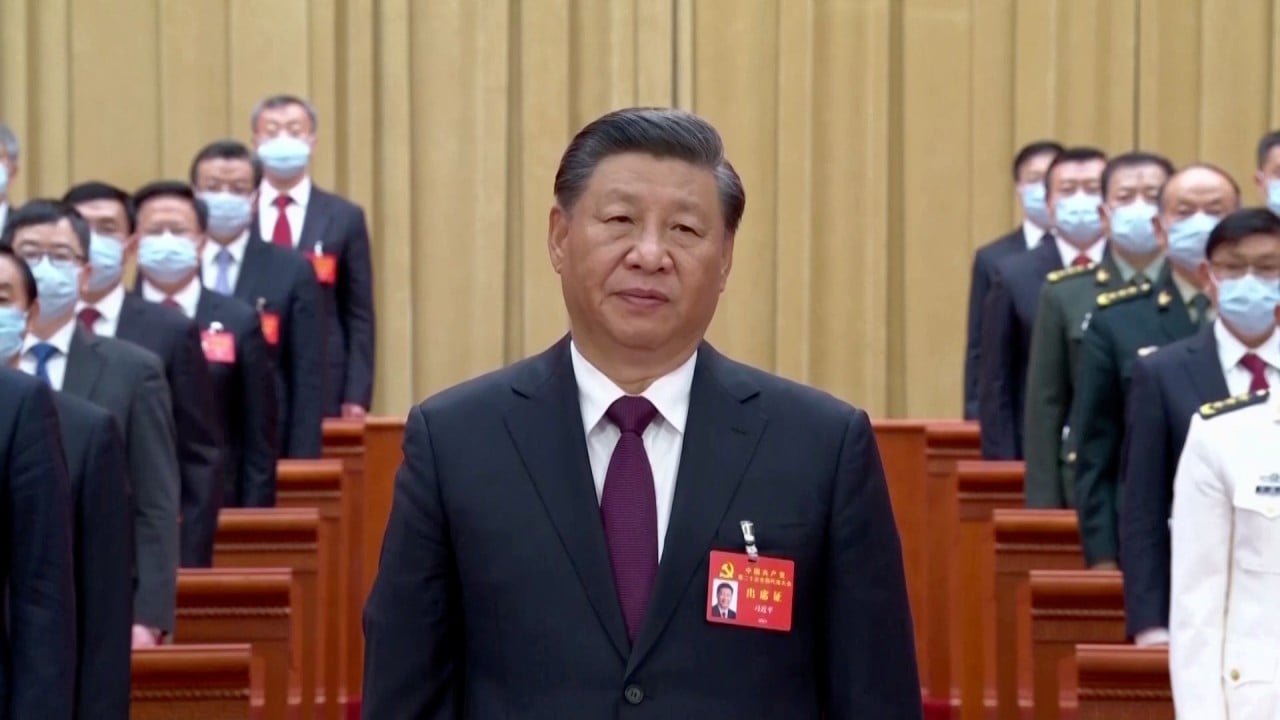
China arrests Tian Huiyu, disgraced former CMB president, following Xi Jinping’s pledge of zero tolerance for corruption
- Authorities completed an investigation of Tian over allegations including taking bribes and abusing power, state media reported on Wednesday
- Tian was abruptly removed from his post in April and expelled from the Communist Party earlier this month
The former president of China Merchants Bank (CMB) has been arrested on suspicion of “taking bribes and abusing power”, according to Chinese state-owned broadcaster CCTV, which cited the country’s top prosecutor.
The National Commission of Supervision completed an investigation of Tian Huiyu, the ex-president and former party secretary of the bank, over allegations including taking bribes, abusing power and trading on undisclosed information, CCTV reported on Wednesday afternoon.
The commission handed the case over to prosecutors, and the Supreme People’s Procuratorate decided to arrest Tian, the broadcaster reported.
Tian was secretary to China’s Vice-President Wang Qishan in the 1990s, according to the People’s Daily.
“[We will] seriously deal with corruption intertwining political and economic problems,” Xi told party delegates attending the congress in Beijing on October 16.
Xi’s anti-corruption campaign has manifested in a sweeping disciplinary crackdown on the nation’s financial sector since last October. Since April of this year it has stepped up inspections, including at the upper levels of the central bank.
Merchants Bank removes CEO amid probe after US$11 billion sell-off
What appointment of rising star Li Xi would mean for Xi Jinping’s anti-graft drive
Tian was expelled from the Communist Party earlier this month, according to an announcement by the Central Commission for Discipline Inspection (CCDI), China’s top antigraft watchdog.
“Tian has no bottom line of discipline and had been using ‘marketisation’, ‘investment’ and ‘wealth management’ as a cover, colluding power and capital, to collect illicit, illegal gains,” CCDI said in the announcement.
Tian graduated from the Shanghai University of Finance and Economics in 1987 before acquiring a master’s degree in public administration from Columbia University in the United States in 2002.
Xi Jinping tells Communist Party to keep up campaign against corruption
He served as a secretary to China’s Vice-President Wang Qishan, CCDI’s former head, when Wang was president of China Construction Bank (CCB) between 1996 and 1997, according to a 2013 People’s Daily article published when Tian was appointed as the head of CMB.
From 1998 to 2003, Tian was vice-president of the trust investment arm of China Cinda Asset Management, a company set up to take over bad loans from state-controlled CCB. Following that, he took up top positions in CCB’s local branches including in Shanghai, Shenzhen and Beijing.


